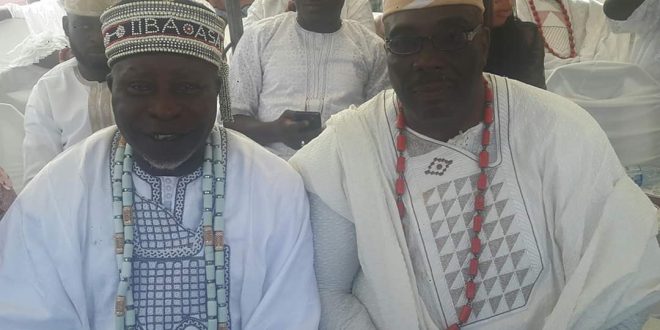In 1979, Alhaji Lateef Kayode Jakande, the then Governor of Lagos launched the first State owned Television Station, LTV, in Lagos.
It was the first 24 hour station in Nigeria. With the introduction of Lagos Weekend Television, which ran from 7.00 pm on fridays to 6.59 on Monday morning, the station instantly became the go to station for Lagos TV viewers.
Because of the UPN/NPN rivalry, the then President decided to block the VHF channel 8 with its own NTA signals.
Undaunted , the Jakande administrators simply moved to UHF, again, the first station to do so.
When the matrer was resolved, LTV got back its VHF platform, but the federal government then converted the jamming equipment to a new TV station, and NTA channel 7, Tejuosho was born.
While LTV had the liberty to run foreign movies, series and docudramas, NTA7 was constrained by its ownership and Corporate Vision, it therefore must bend backwards to create content in yoruba to compete with LTV’s hold on the younger demography.
With most of its pioneer staff from the Ibadan station, it required no degree to figure out that the 13 weeks quarterly drama series that had worked wonders for the Ibadan station since 1959 could also work for the new station.
The first truly attention grabber was Feyikognon, a series in which the village head, played by Sunday Akintola, regaled the villagers with thrilling tales that were then acted out before the Baale rounded it up with a moral payoff.
But the game changer, which was the percusor of today’s Home Video Industry, was Arelu.
Arelu, which was an original series written by Chief Jimoh Aliu, featured the ultimate villain, Fadeyi Oloro, became so popular that the entire South West will became deserted once it was on. In fact, people travelled to Ibadan to catch the next episode so they can come back to Lagos a day later to act as spoilers.
It was the demand for Arelu, and later Ajalu, that threw up new characters like Aworo and Orisabunmi.
Other groups follow the template with varying degrees of success, with the most noticable being Abija, written by the late Alhaji Yekinni Ajileye of Osogbo.
Without Arelu, there would not have been the need for the German trained filmmaker, the late Alade Aromire to create a counter programming to move away from the traditional template by making visual storytelling in a modern setting, and shooting it for home viewing, instead of the standard celluloid format.
Without Aromire’s vision and template, Nollywood would have remained a pipedream.
Happy 85th birthday Baba Aworo, Chief Jimoh Aliu.
Many happy returns of the day.
Osi Aare lo so be, aase gun.
My10kobo.
 Hottestgistnaija.com
Hottestgistnaija.com





